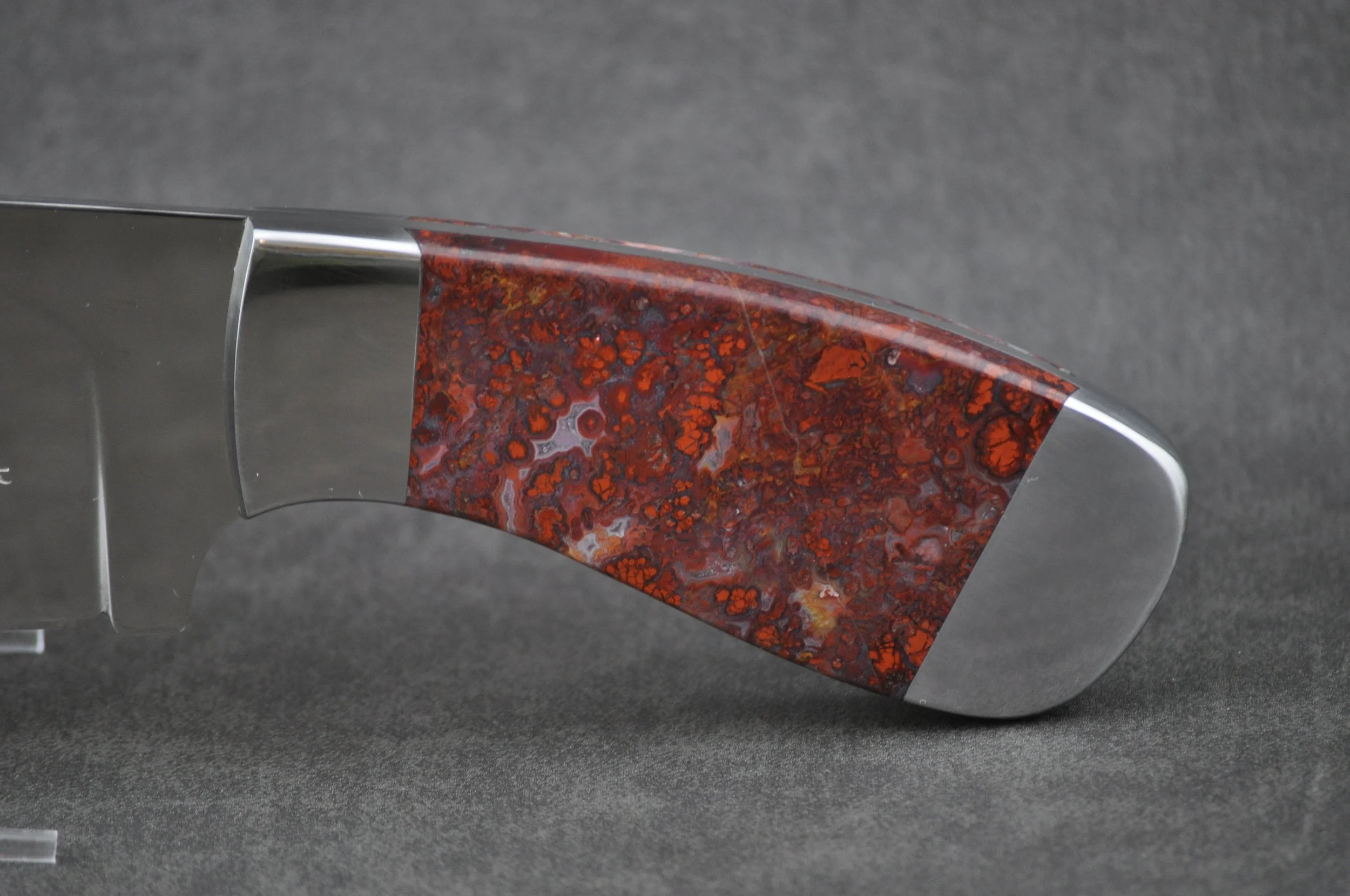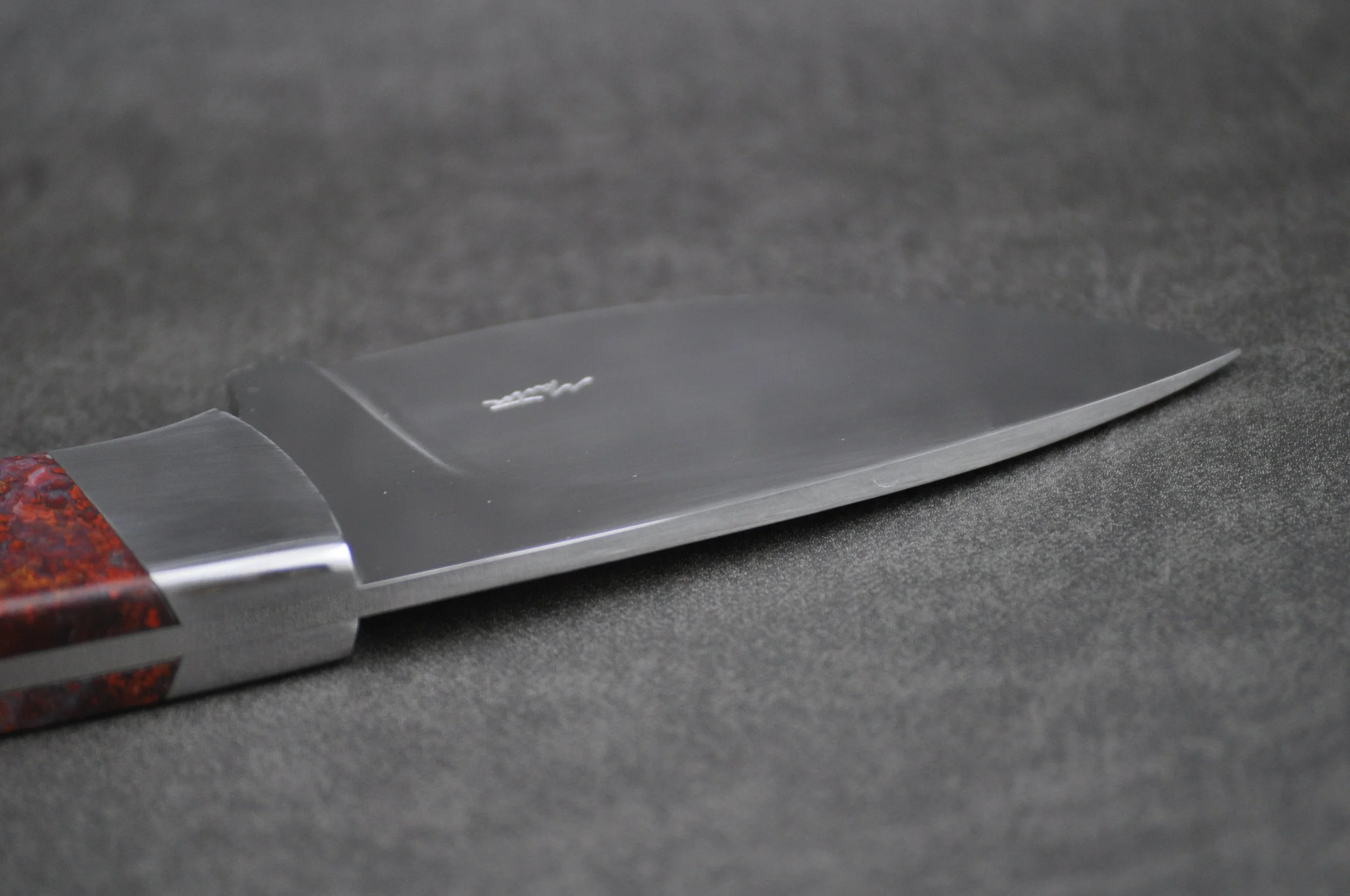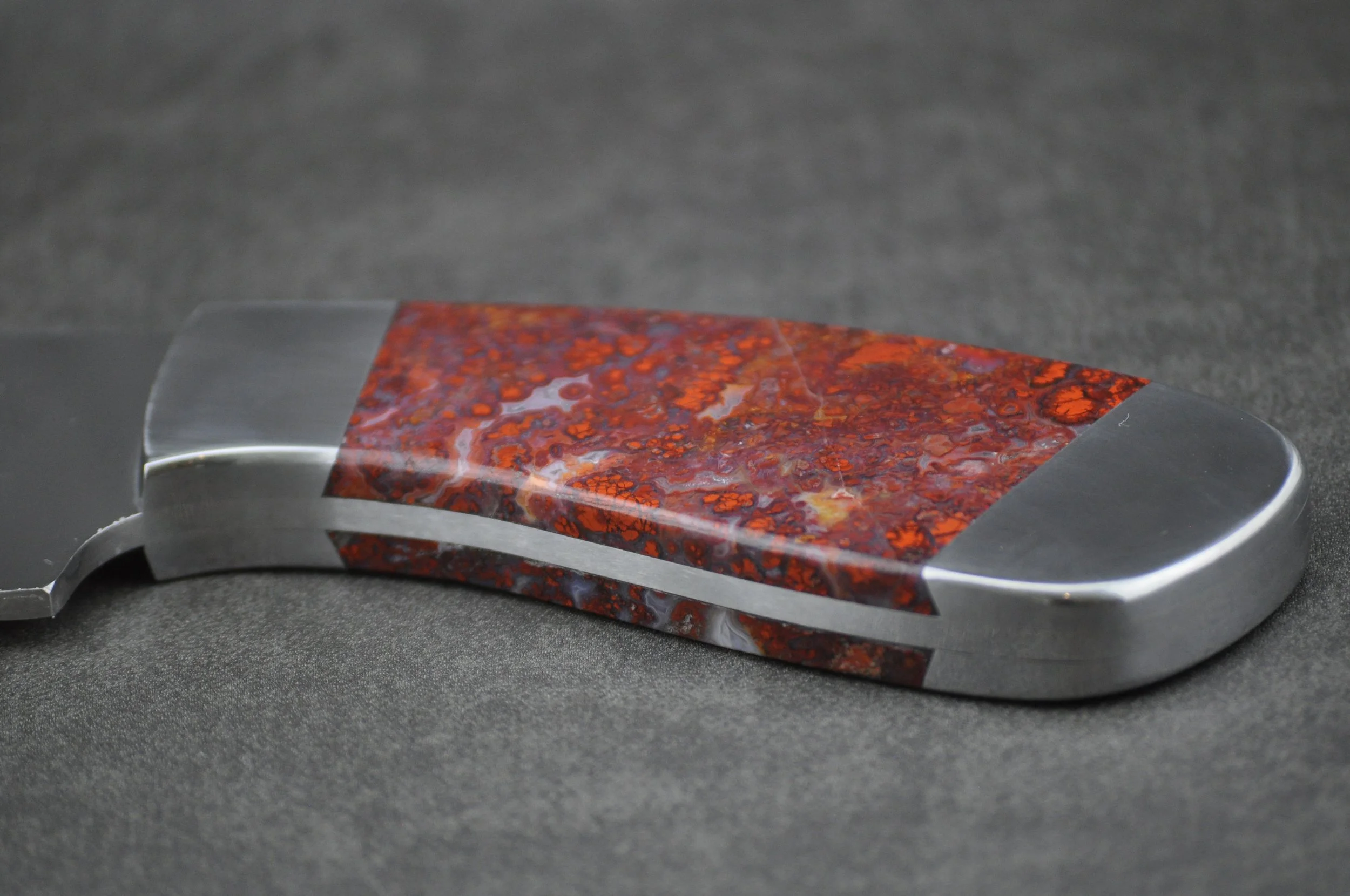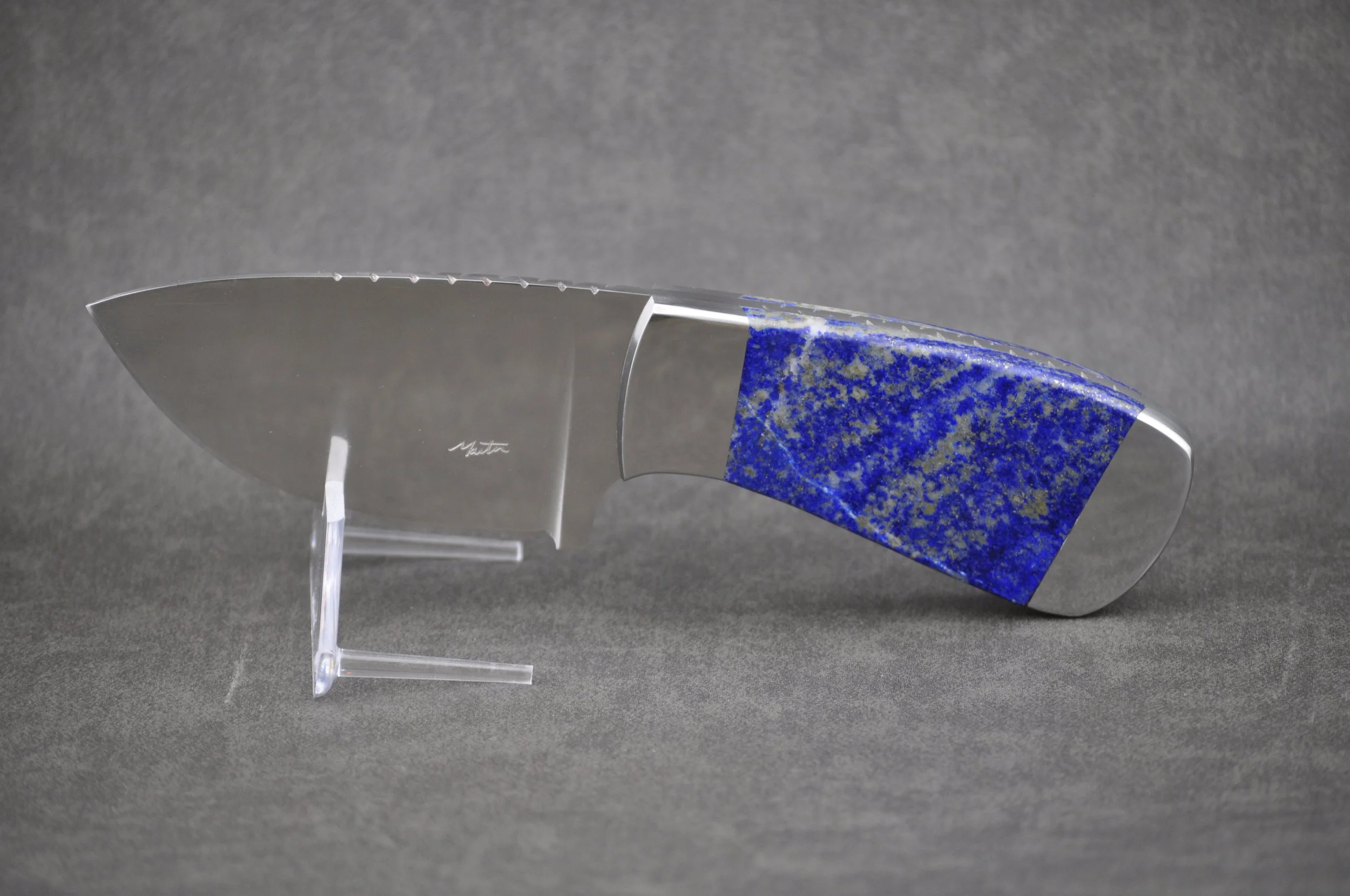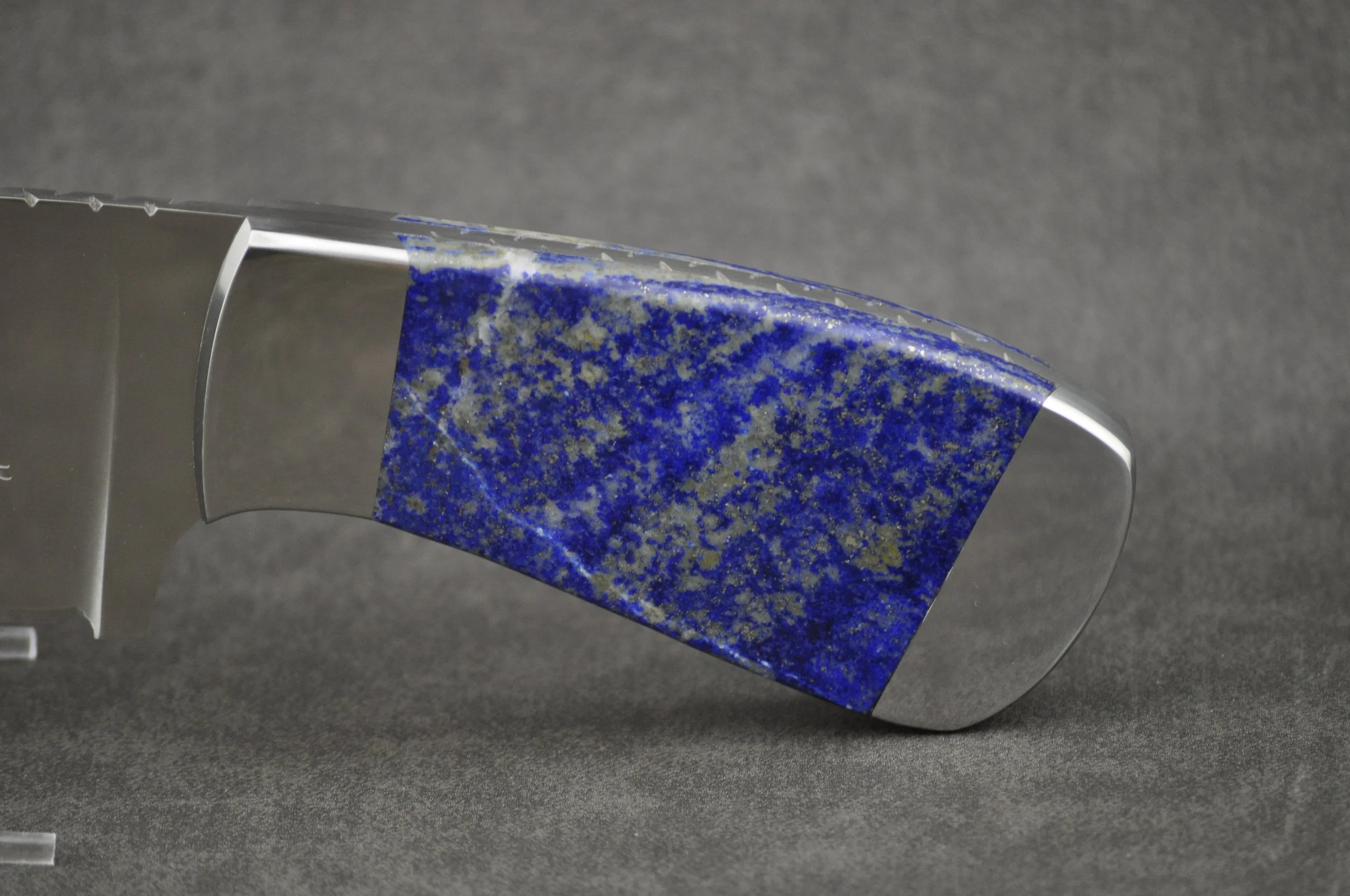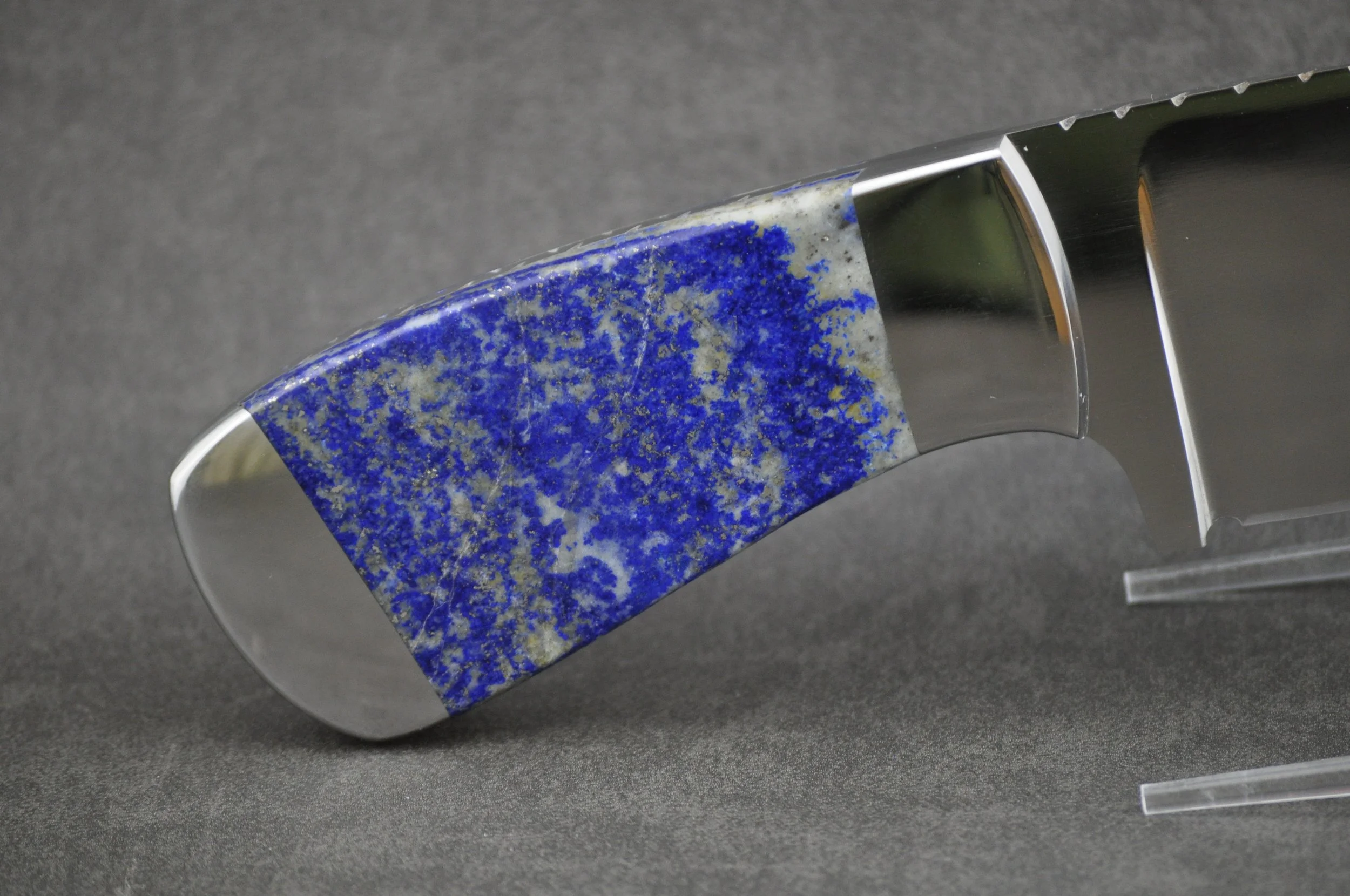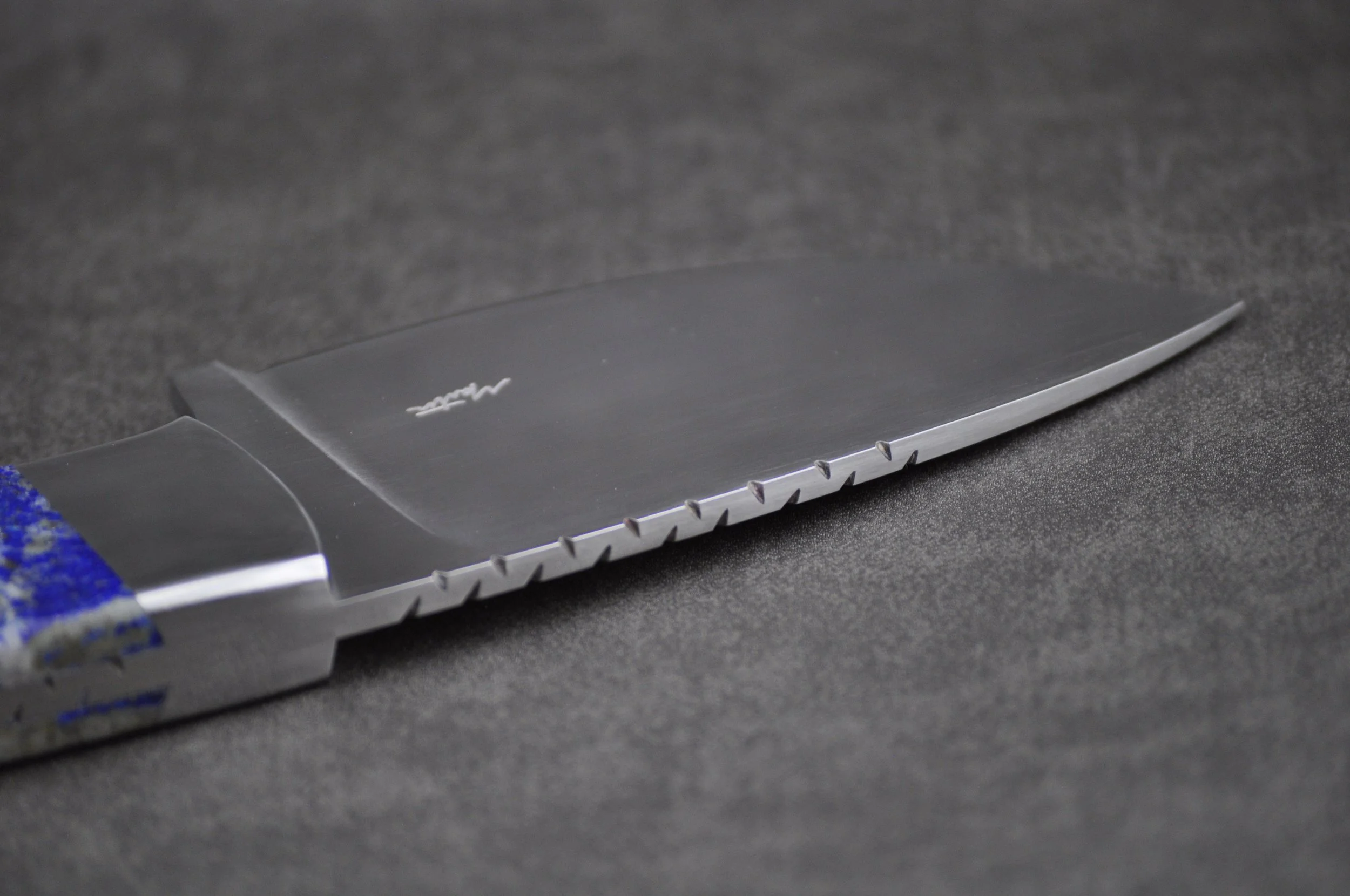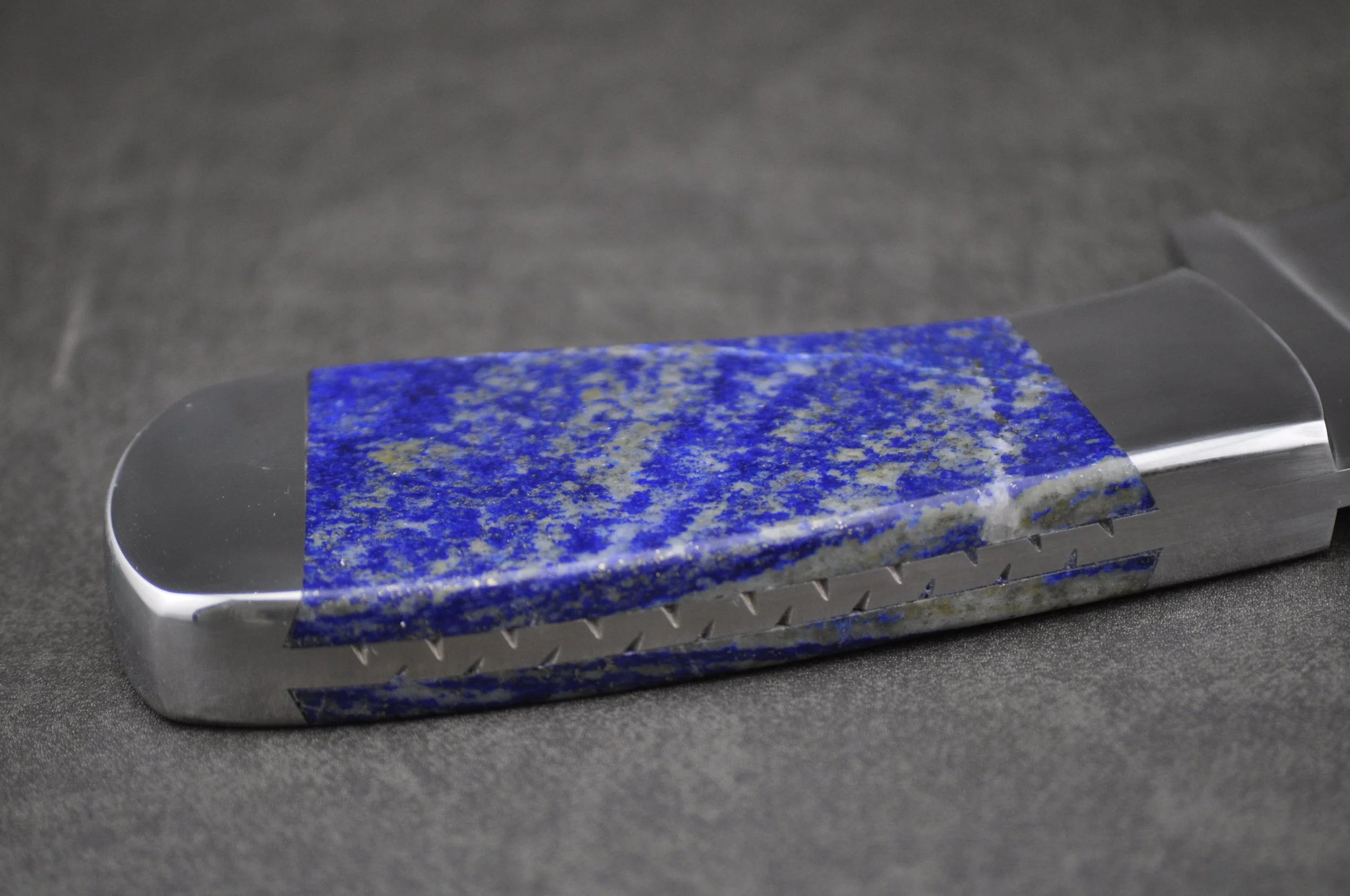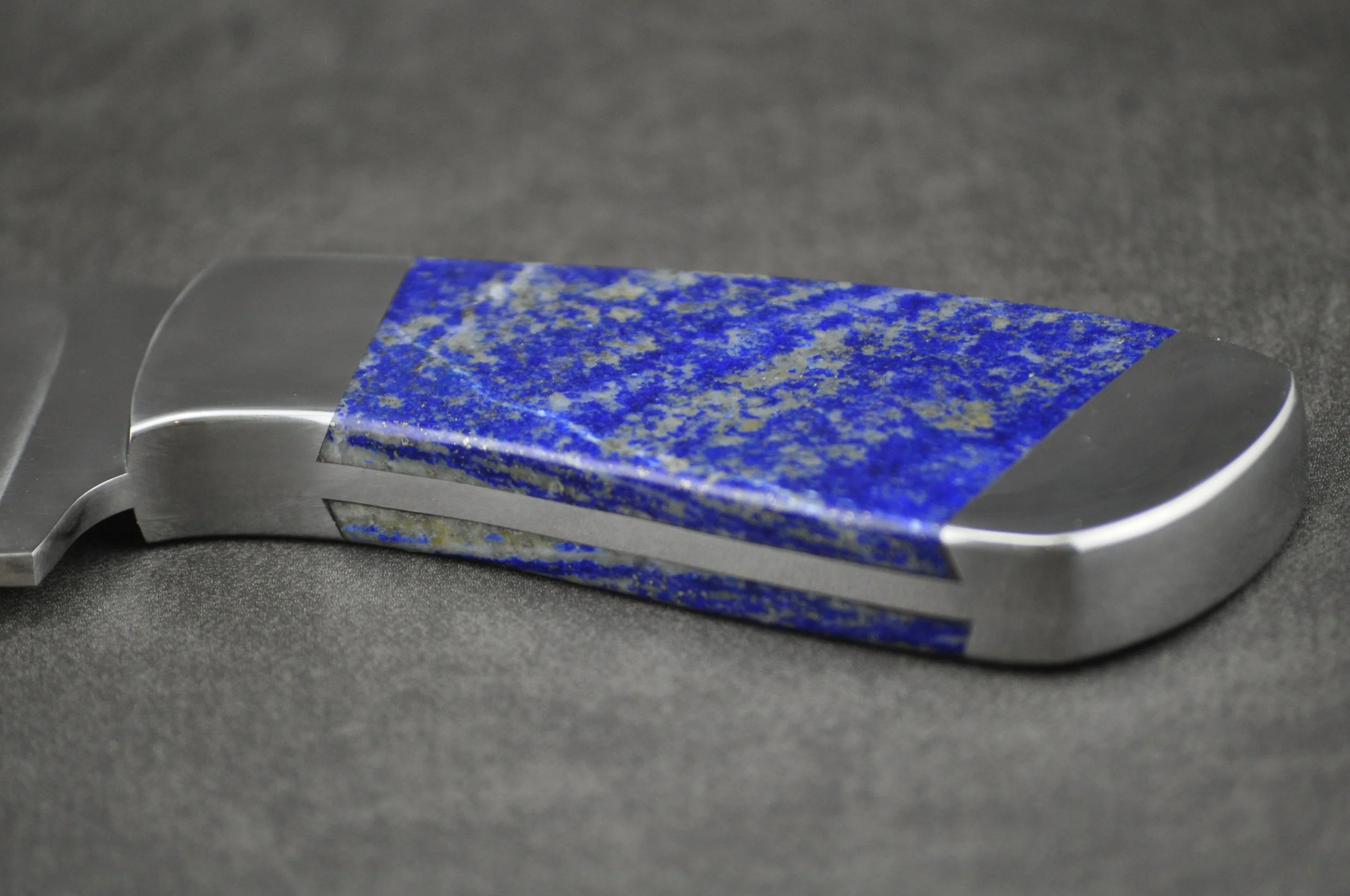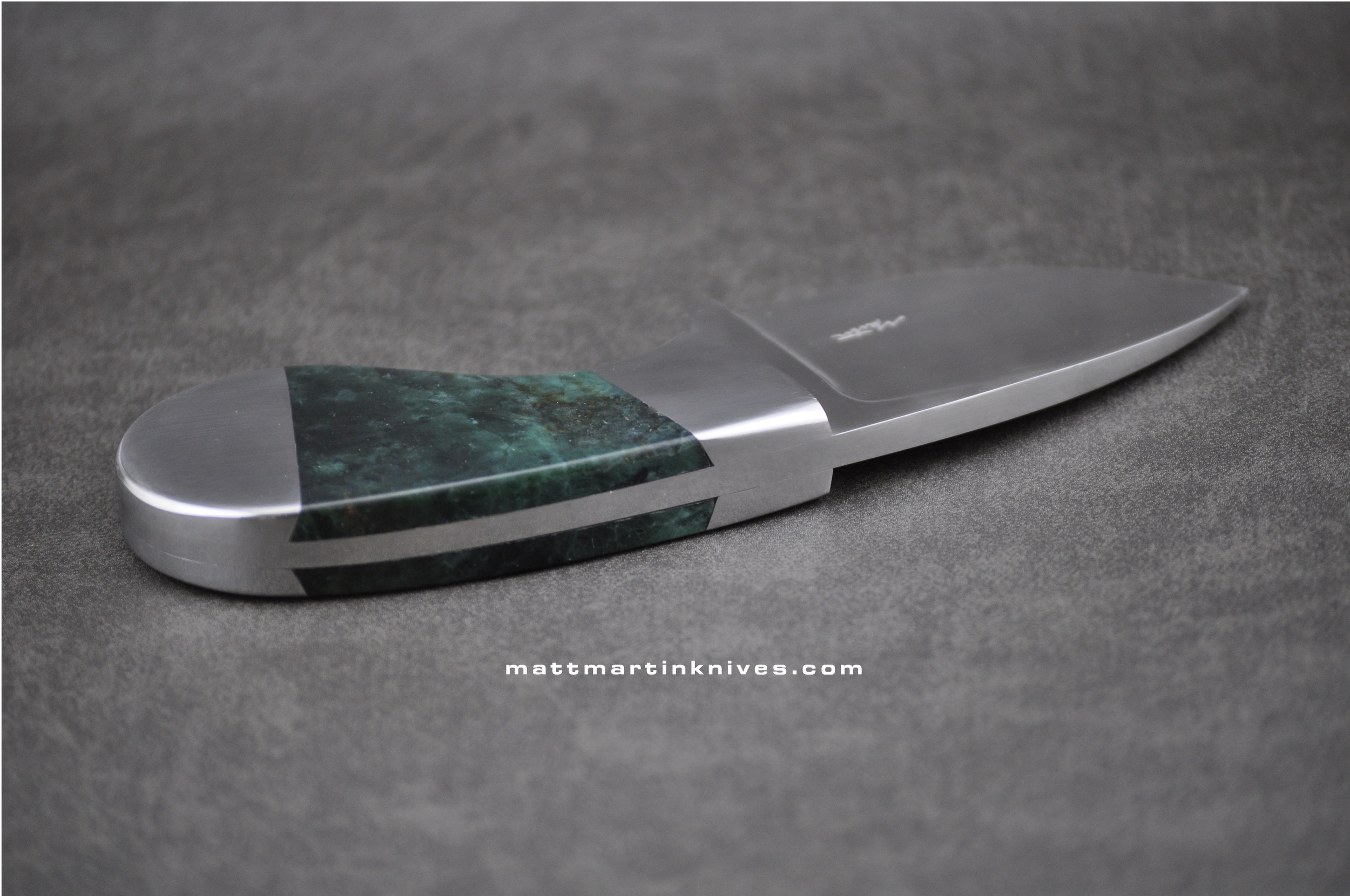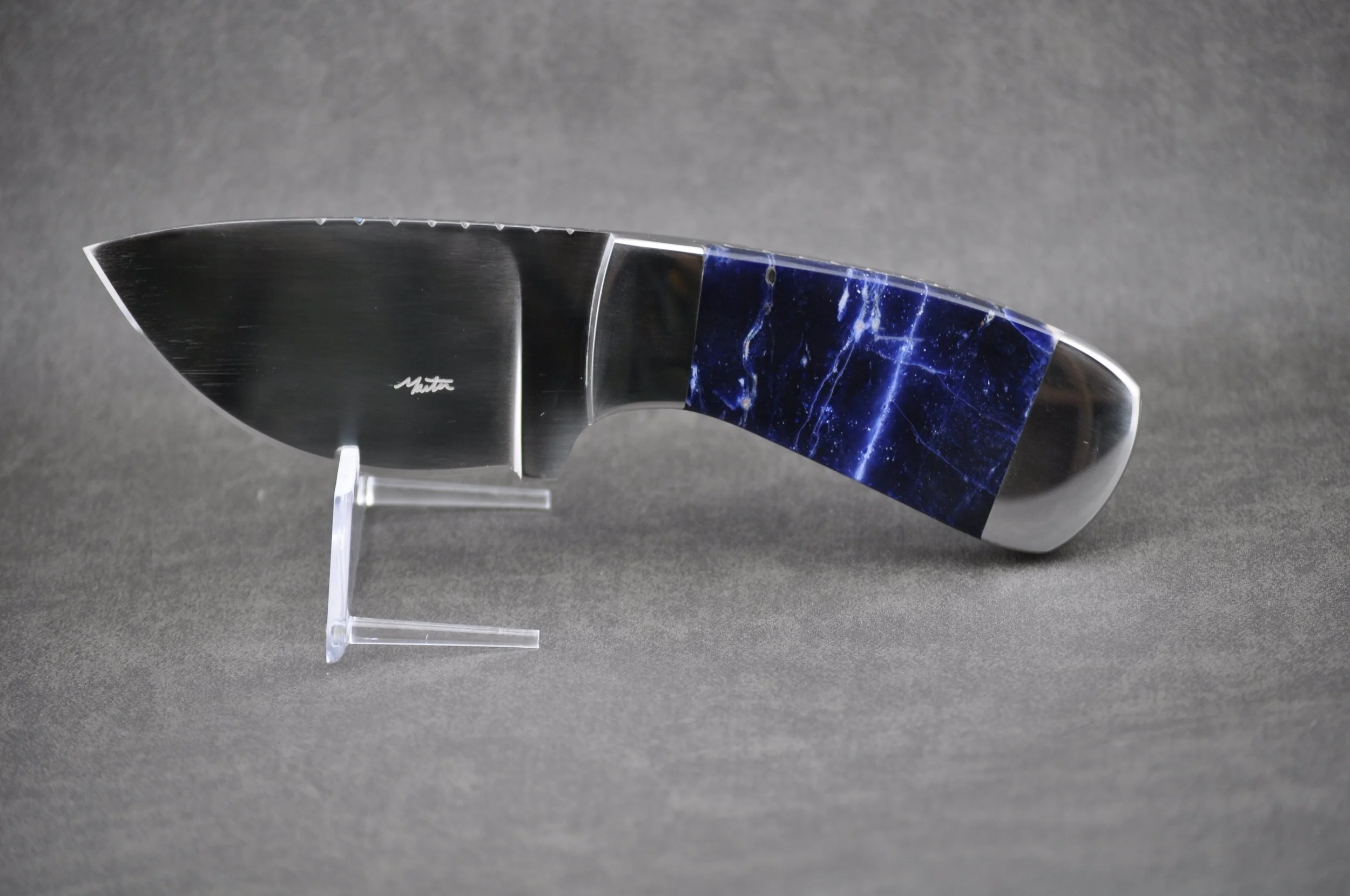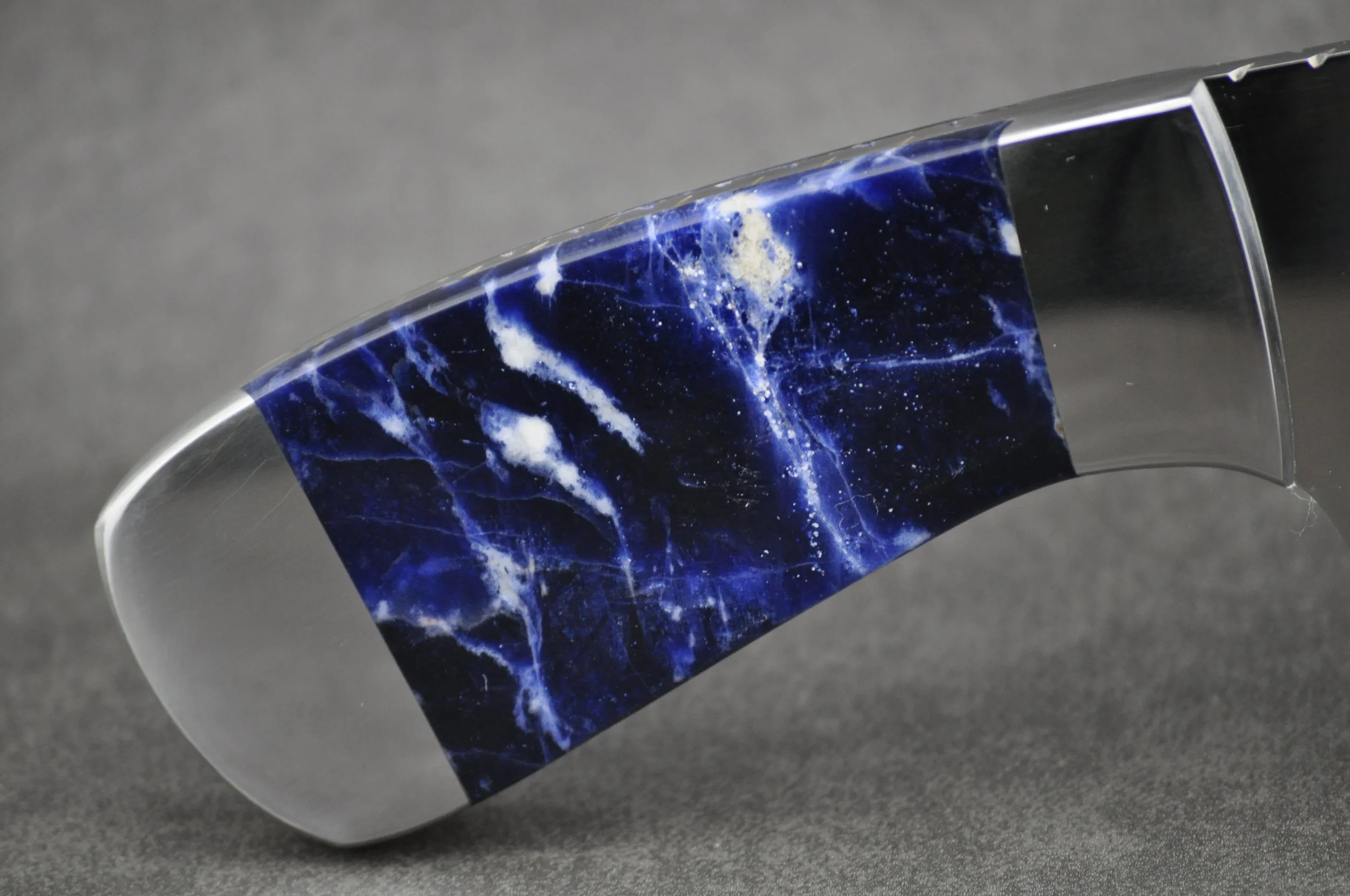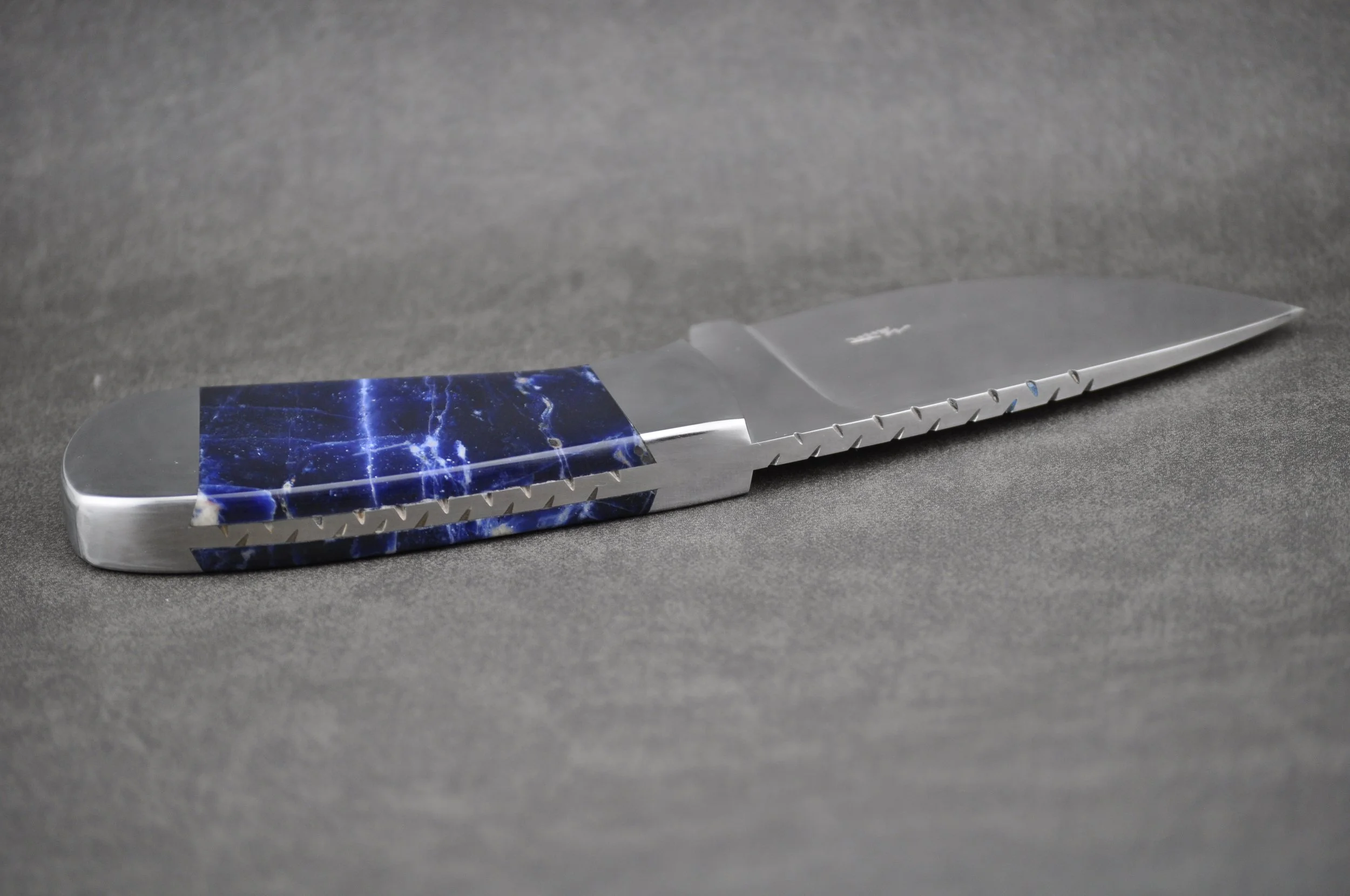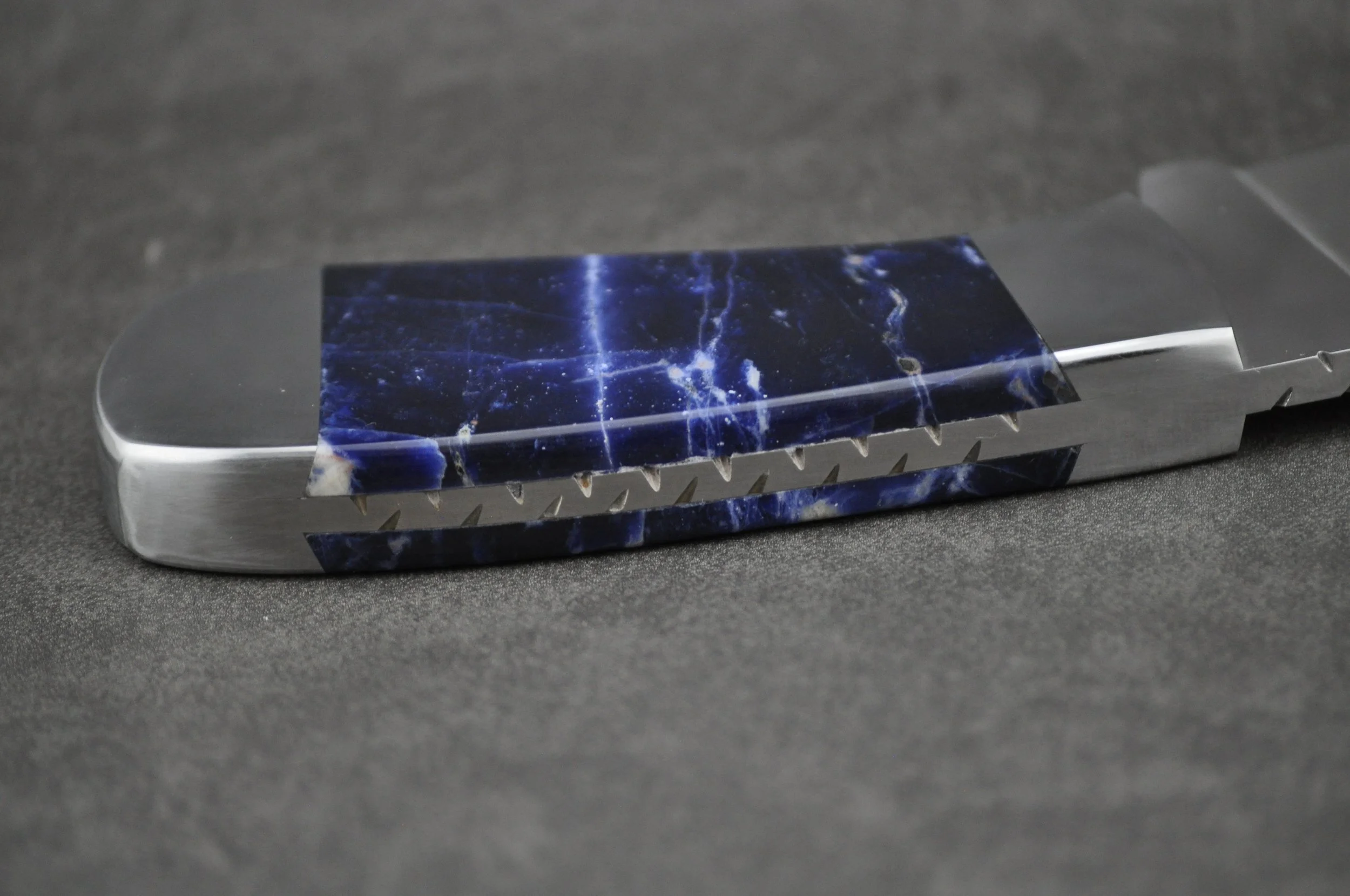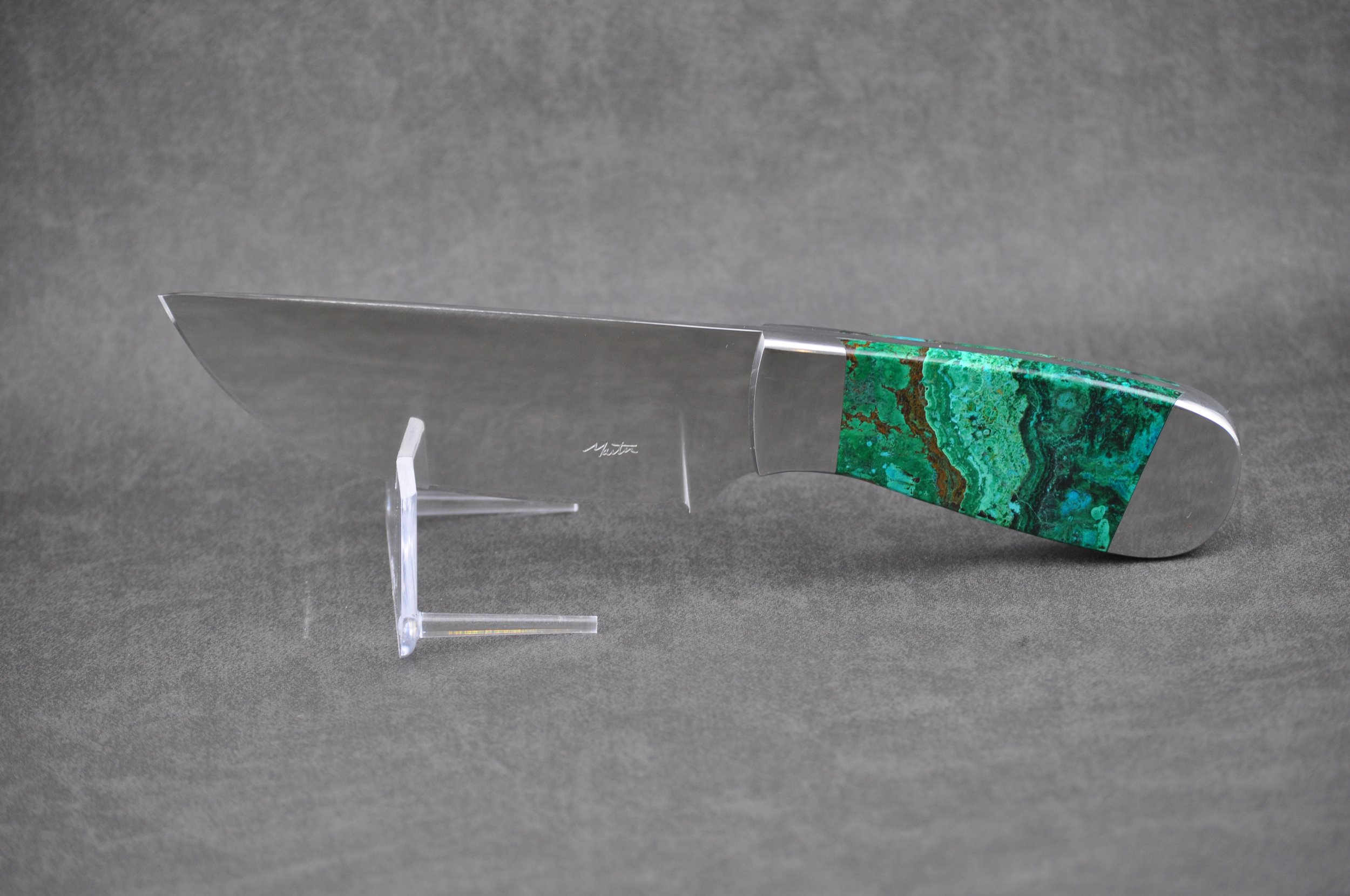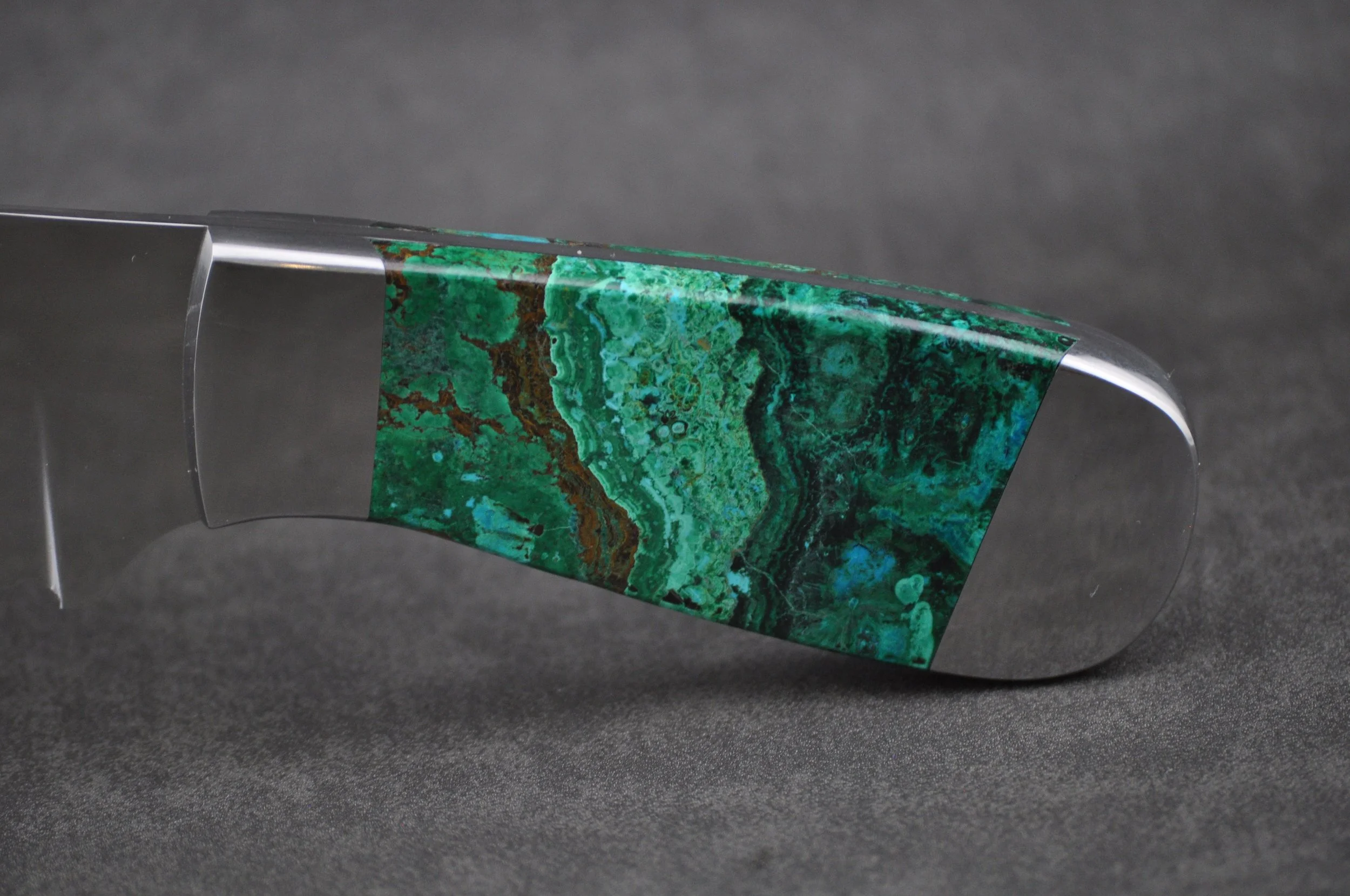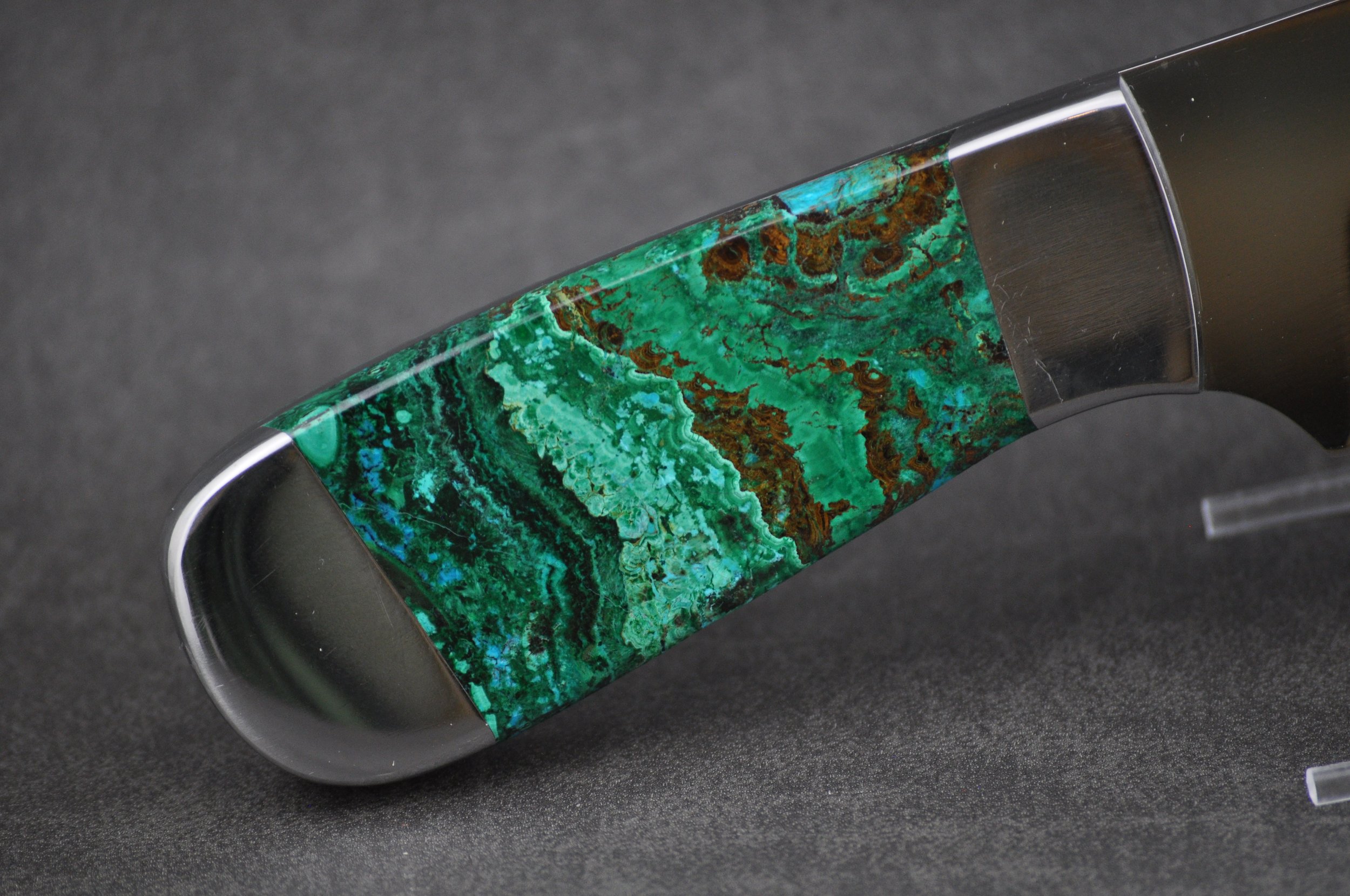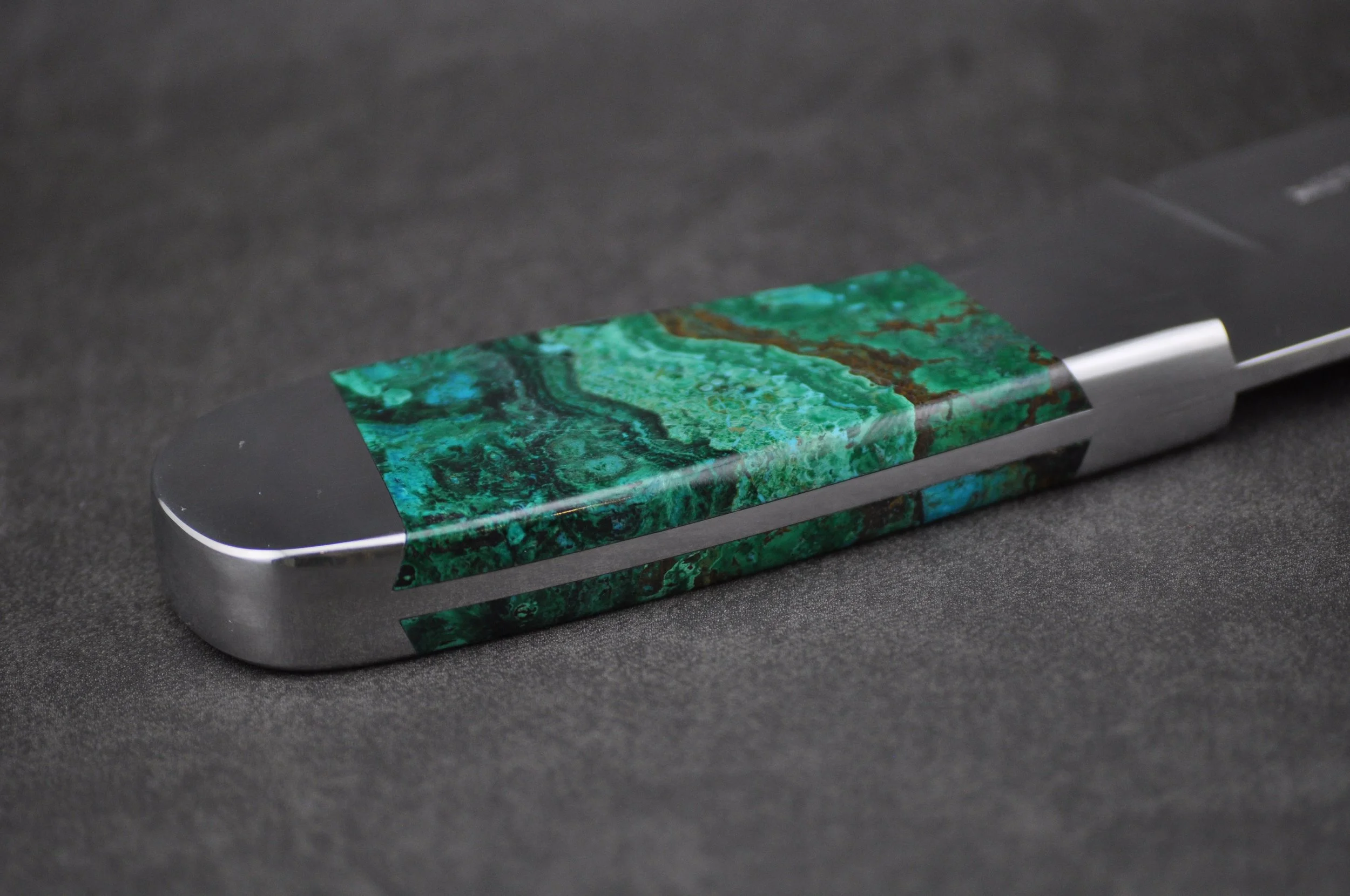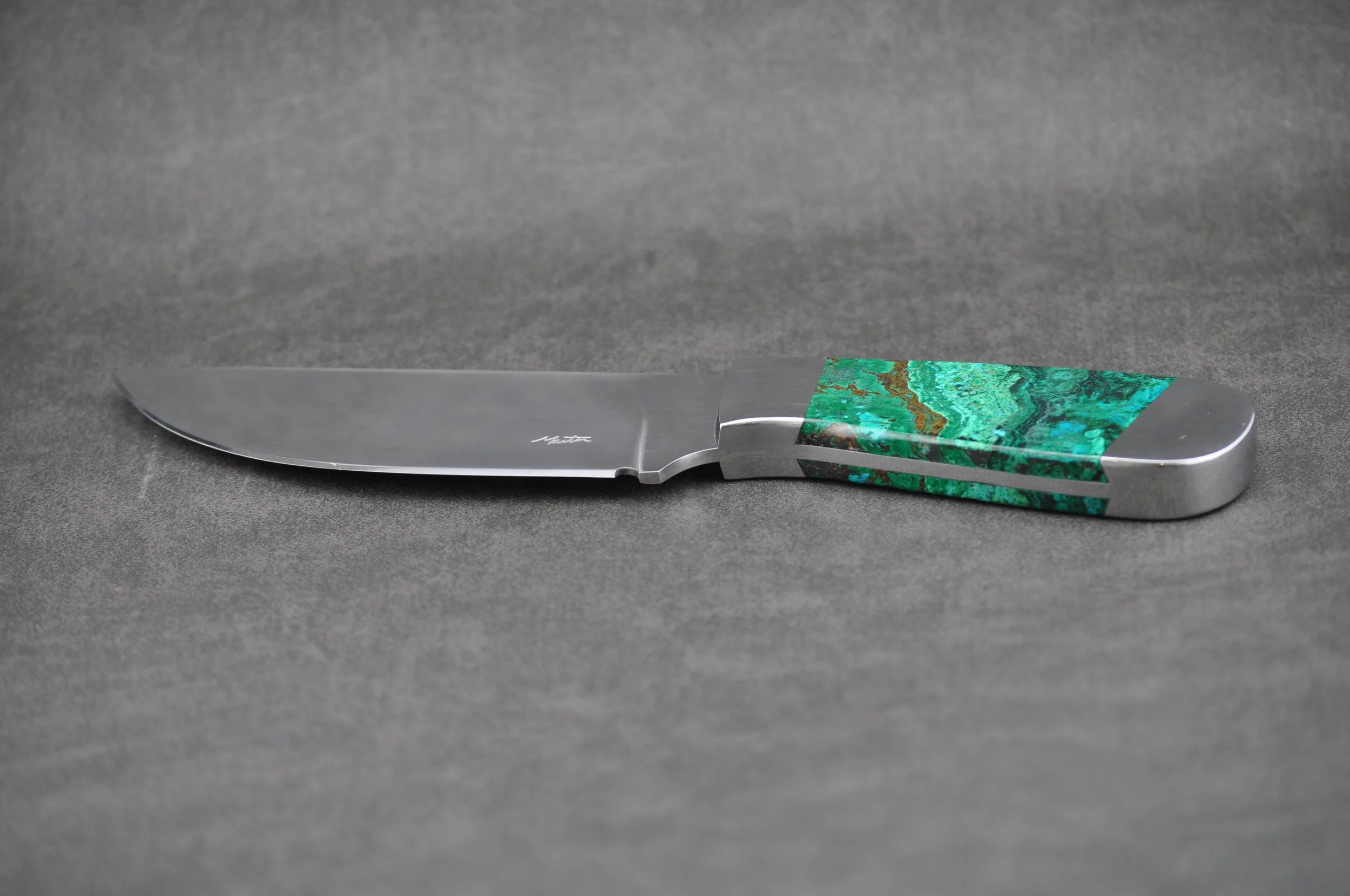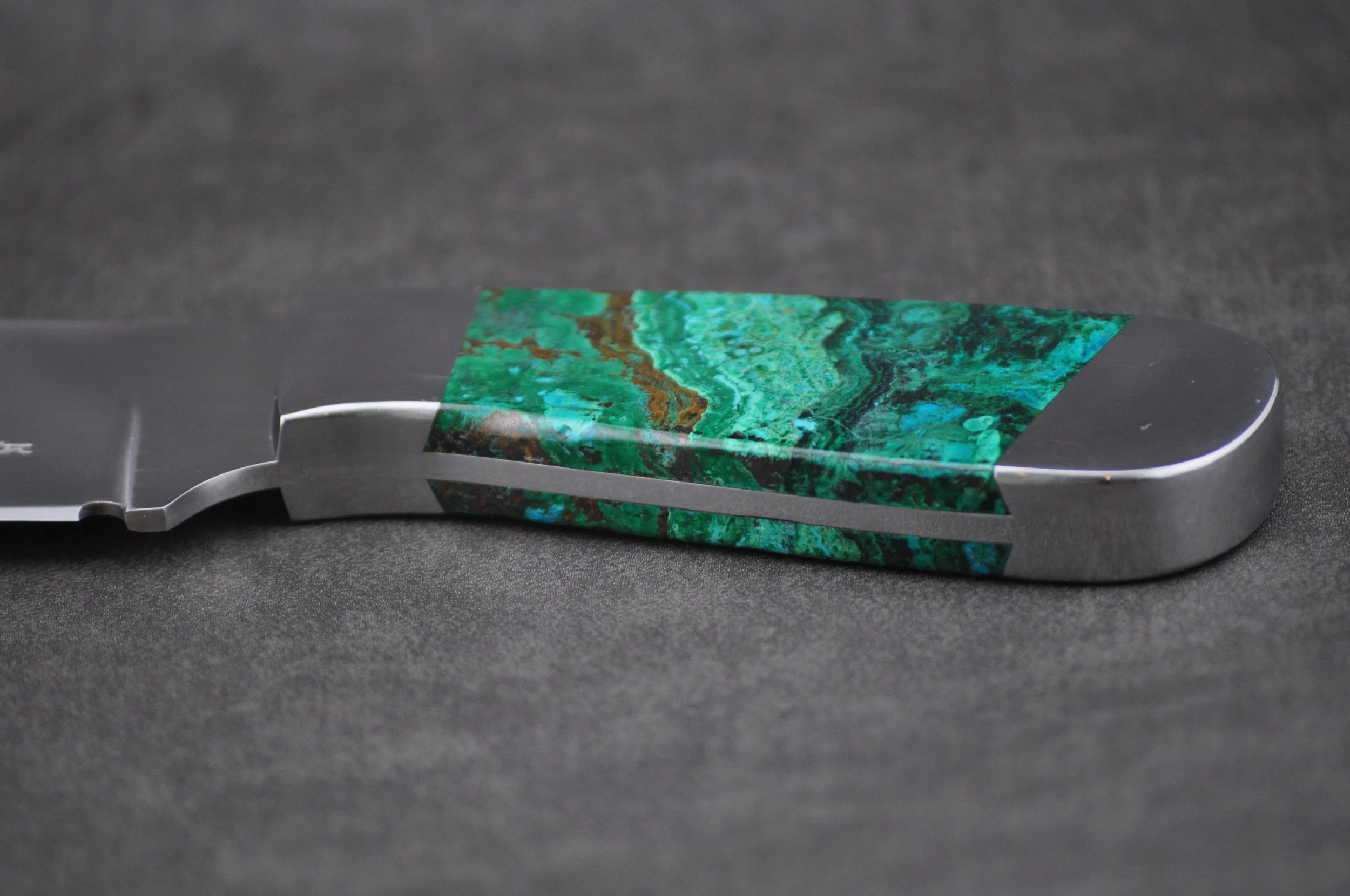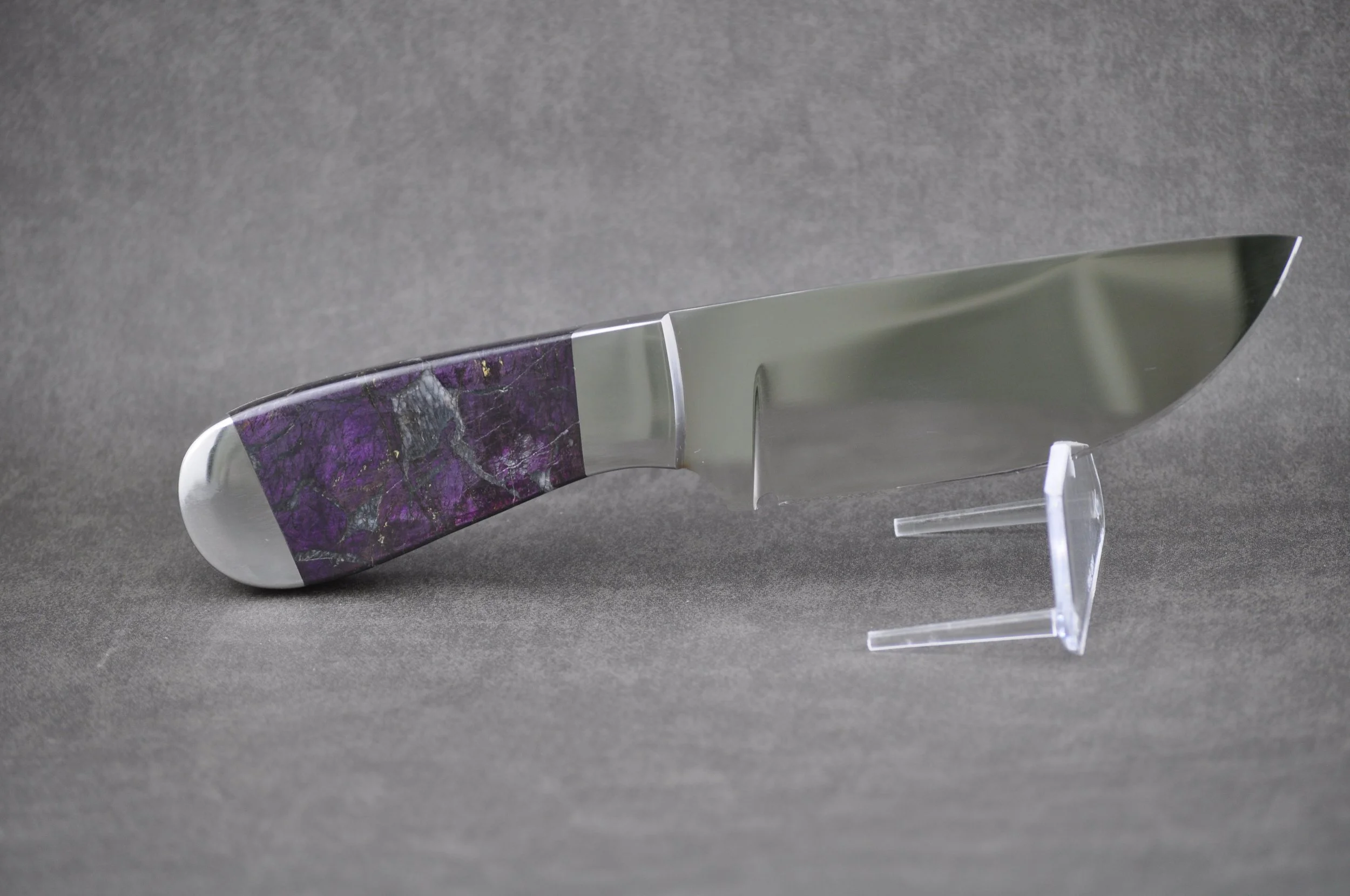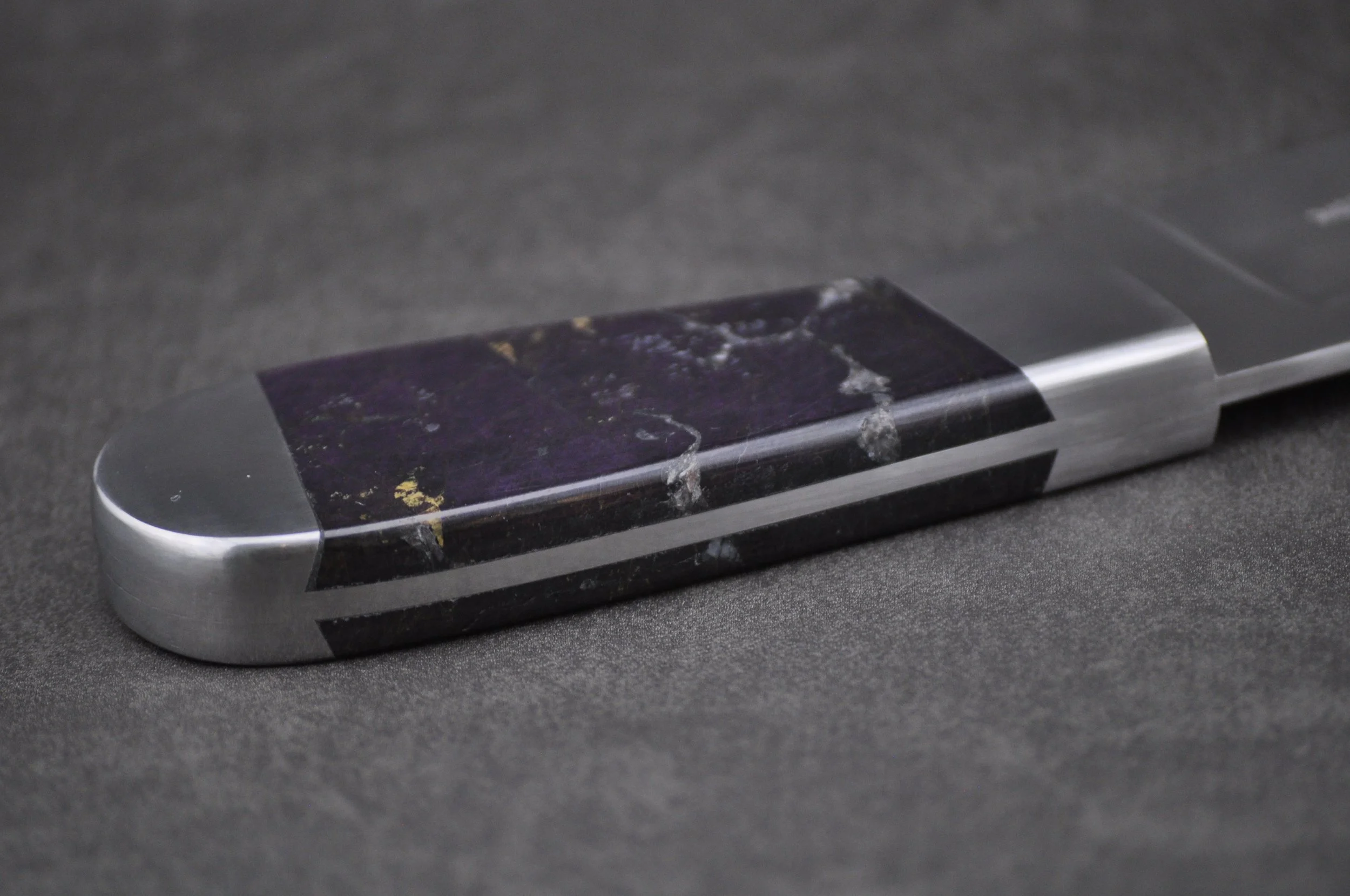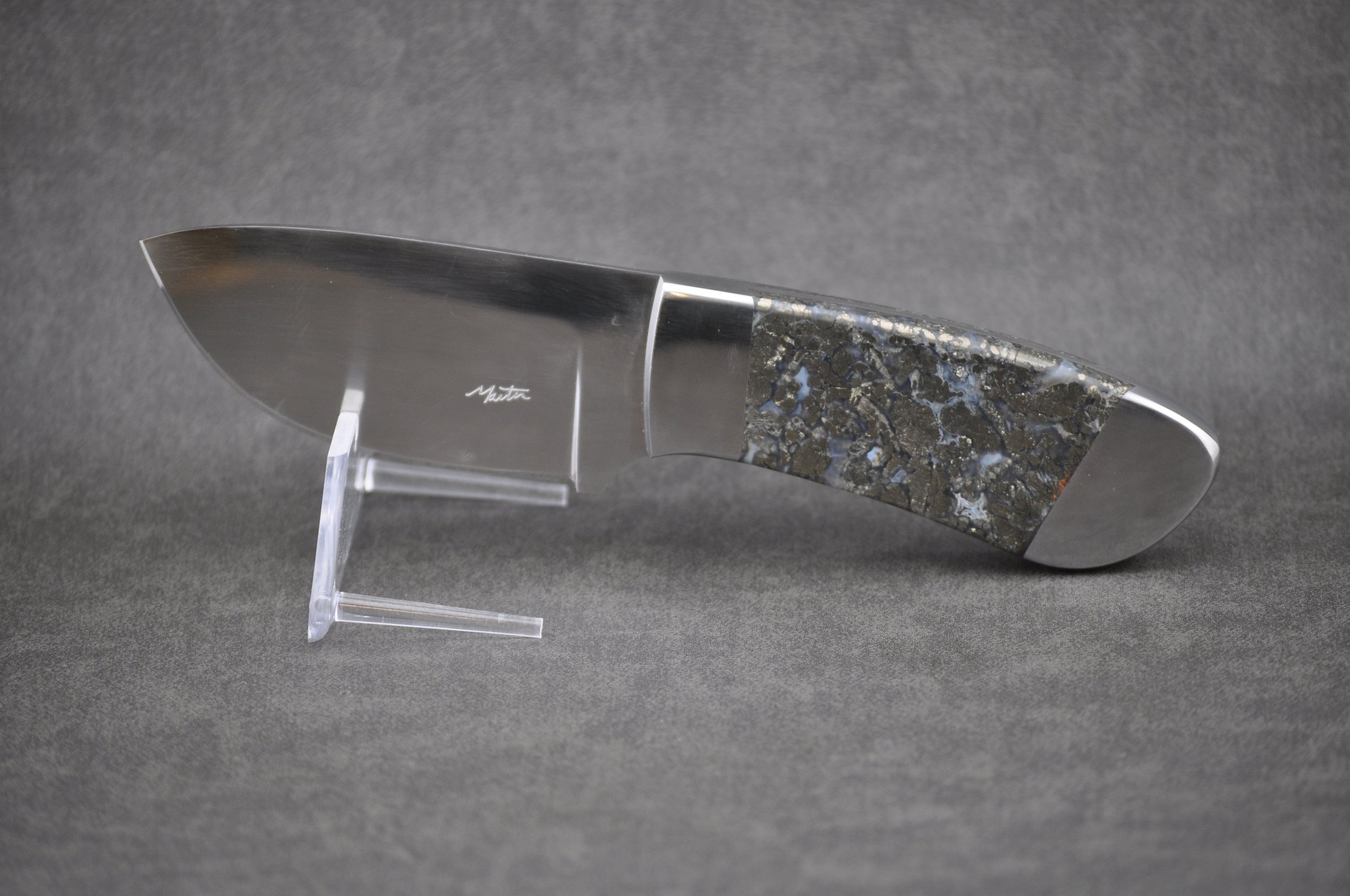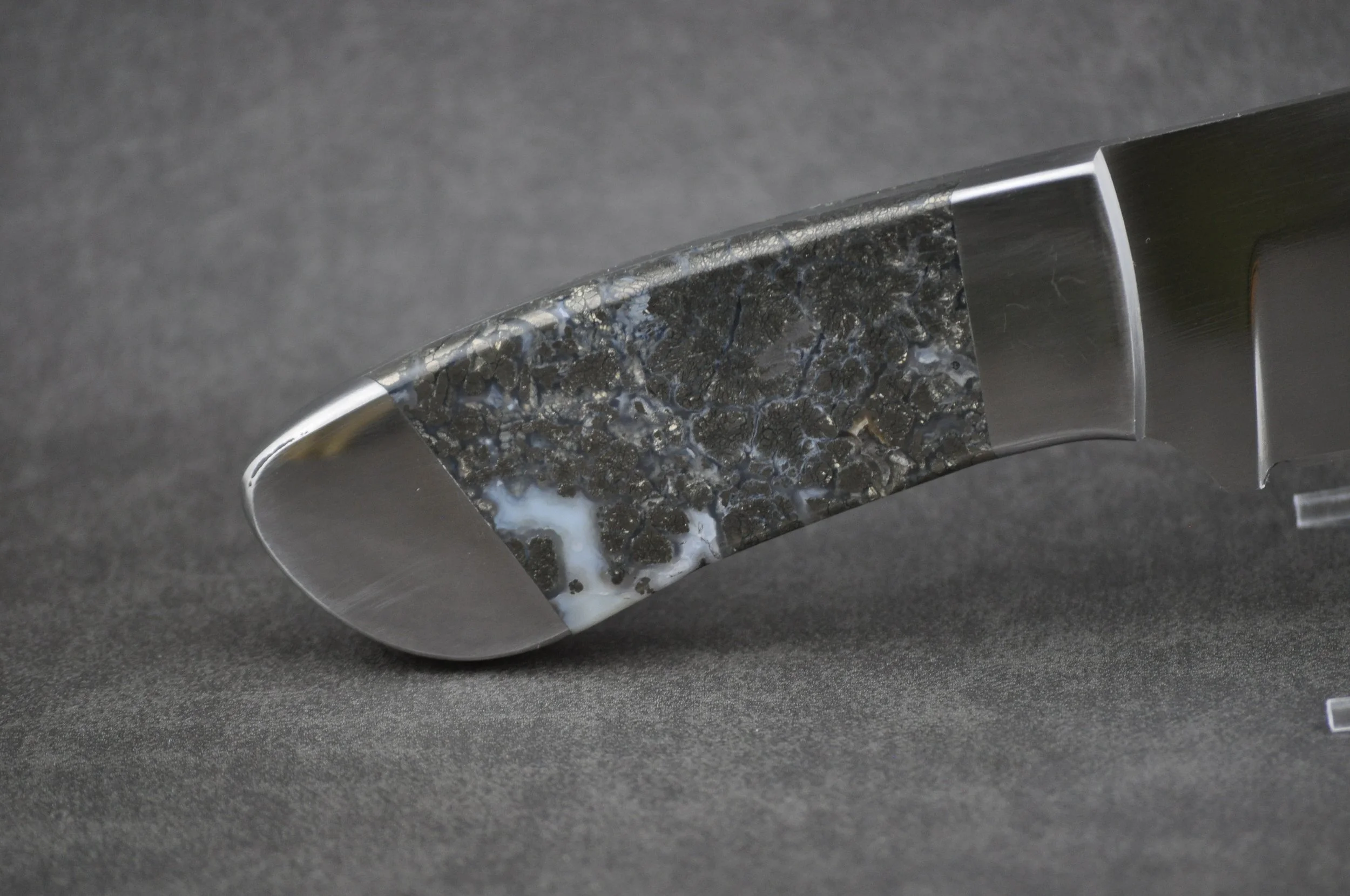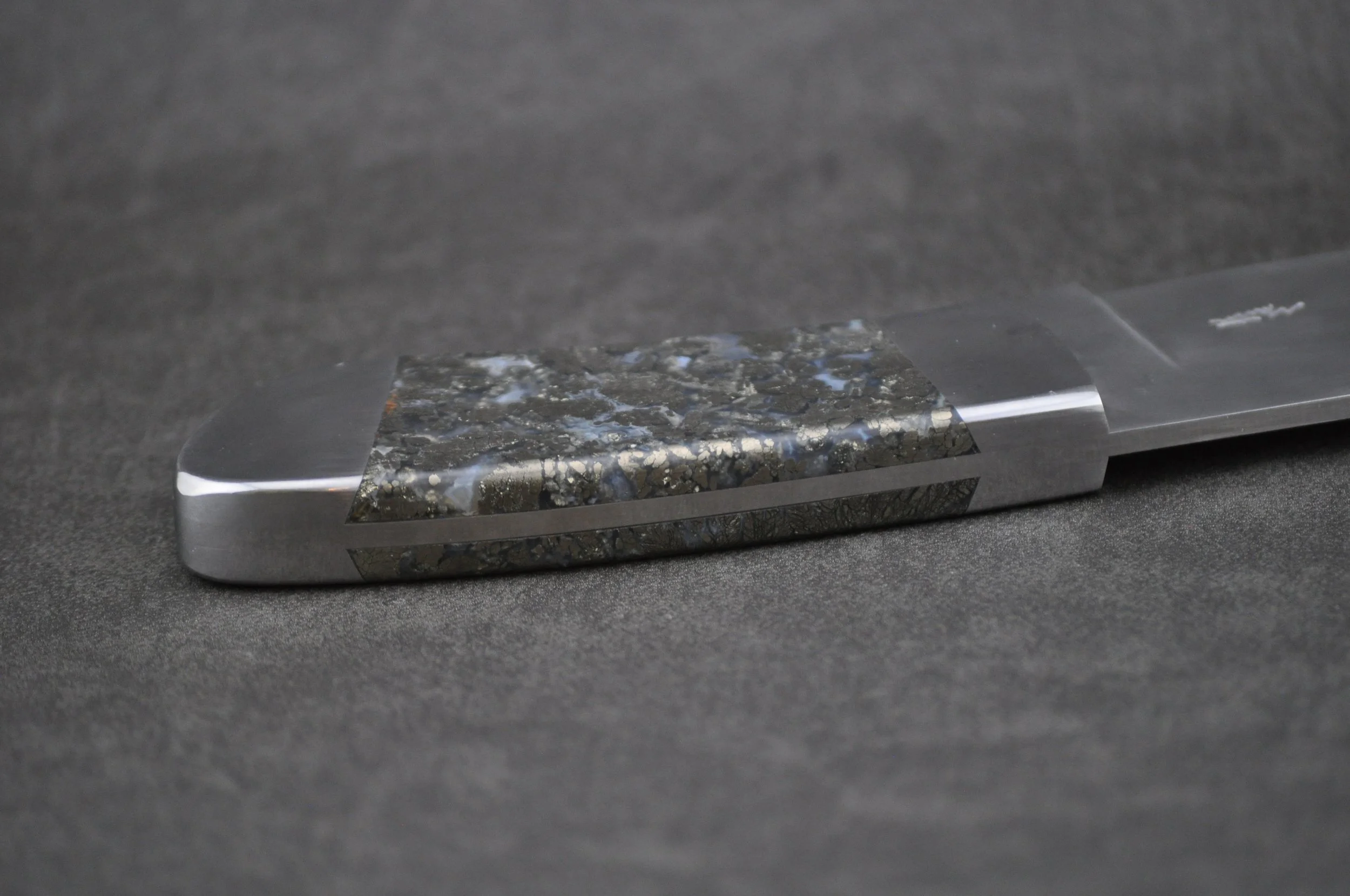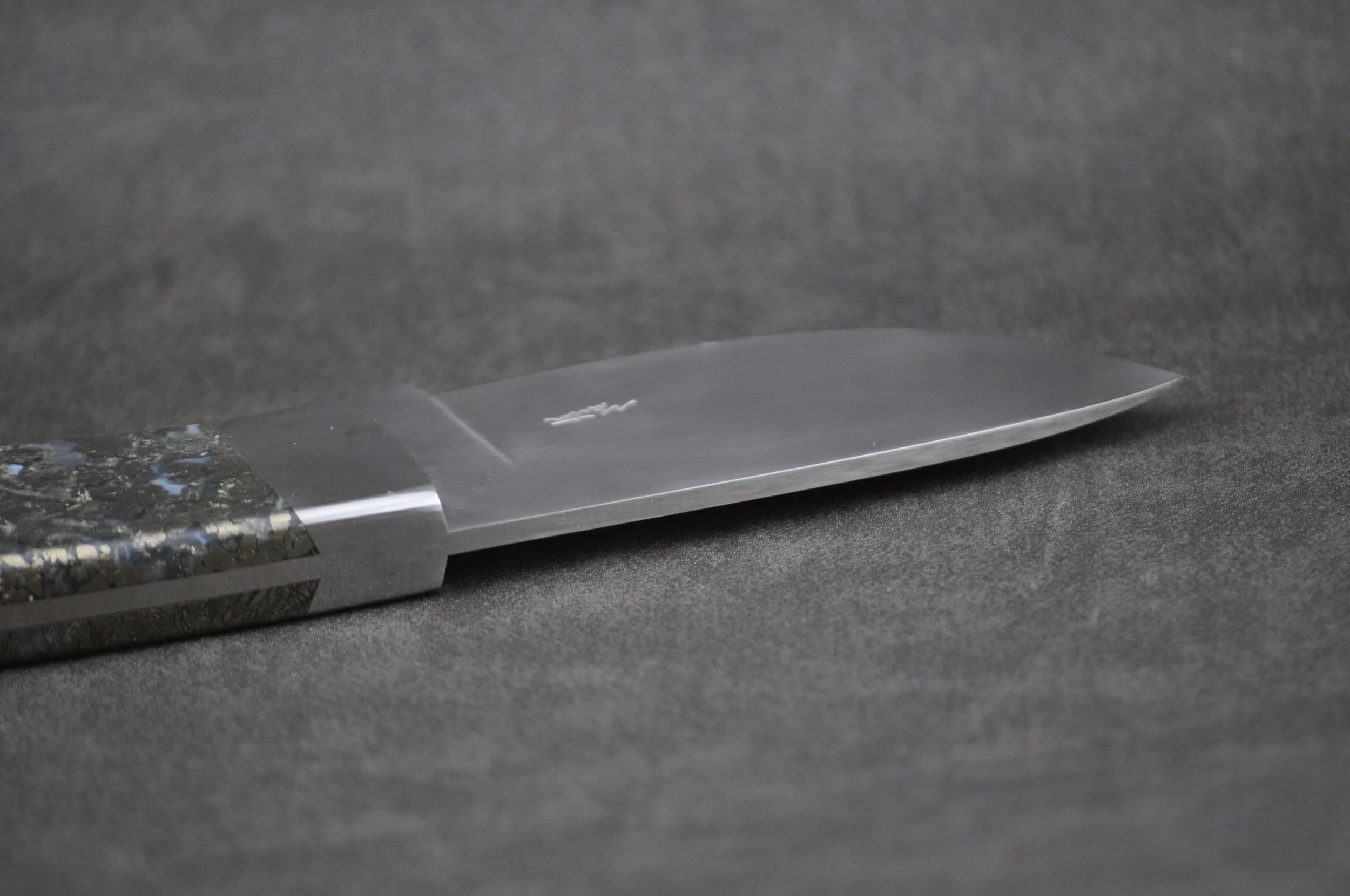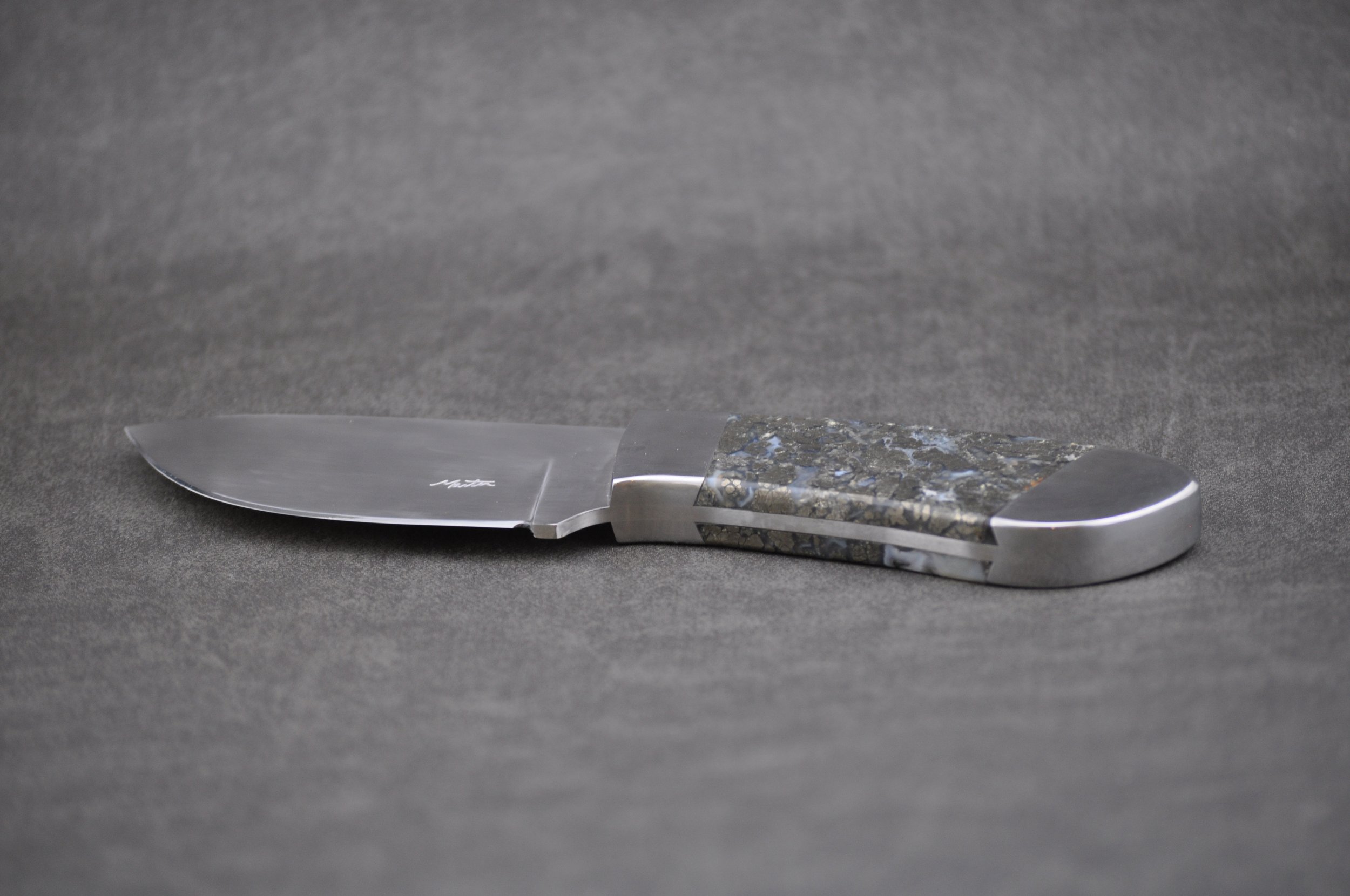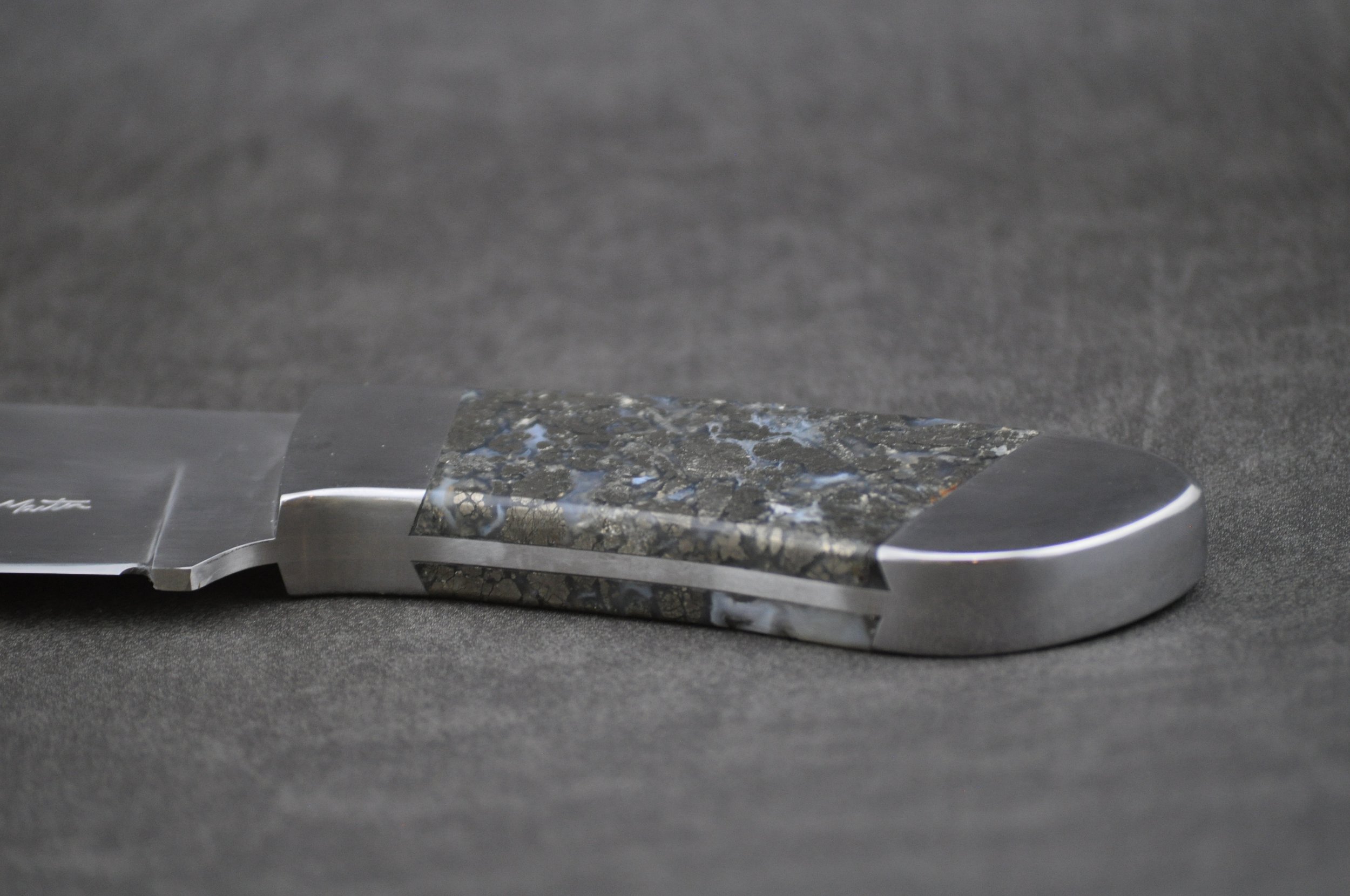About this Bison
Blade Steel: 440C Stainless, 59 HRC, 416 Stainless Bolsters
Dimensions: OAL 7 1/2”… Blade length 3 1/8” … 1/8” Tang
Handle Material: Red Plume Agate
Item: MMB-142
The Bison is one of the most iconic species associated with the former frontier and the American West. A stout, powerful animal, and a reminder of what was lost and sacrificed in the name of progress.
About Red Plume Agate
Plume agate forms in hot springs, and is made of clays, metals, and minerals. The plume-like patterns are created by microscopic organisms that collect silica and other particles from the hot springs and deposit them in the stone; these components can lead to flowering plumes representing any color of the rainbow.
About this Bison
Blade Steel: 440C Stainless, 59 HRC, 416 Stainless Bolsters
Dimensions: OAL 7 3/4”… Blade length 3 1/2” … 1/8” Tang
Handle Material: Lapis Lazuli
Item: MMB-143
About Lapis Lazuli
Lapis Lazul is a deep-blue metamorphic rock prized since antiquity for its intense color. Known for its hypnotizing deep blue color, it can also include a mix of white and gray, with gold-like flecks of pyrite that look like stars cast in a rich night sky. It comes from the mines in Badakhshan, Northeastern Afghanistan, from the Andes mountains near Ovalle, Chile, and to the West of Lake Baikal in Siberia, Russia.
About this Sophia ($$ Sold $$$)
Blade Steel: CPM 154 Stainless, 59 HRC, 416 Stainless Bolsters
Dimensions: OAL 6”… Blade length 2 1/2” … 3/16” Tapered Tang
Handle Material: Jade
Item: MMS-144
About Jade
Jade is a decorative stone used for thousands of years and revered by ancient cultures including the Mayans, the Maori of New Zealand, and many Chinese Dynasties. Jade is comprised of Nephrite or Jadeite, known for its green hues, and as a symbol of nobility and wealth. This knife is the only one I’ll ever name specifically after the recipient—a unique honor for a special girl.
About this Bison
Blade Steel: 440C Stainless, 59 HRC, 416 Stainless Bolsters
Dimensions: OAL 7 1/2”… Blade length 3 1/4” … 3/16” Tapered Tang
Handle Material: Sodalite
Item: MMB-145
About Sodalite
Sodalite is known for its blue hues, ranging from lighter to deep royal blue, along with dramatic streaks of white and black throughout. Sodalite is found in Ontario, Quebec, British Columbia, and Namibia.
About this Lolo
Blade Steel: AEB-L Stainless, 59 HRC, Nickel Silver Bolsters
Dimensions: OAL 8 1/4”… Blade length 4 1/8” … 1/8” Tang
Handle Material: Chrysocolla & Malachite
Item: MML-146
Lolo pass is a famous point along the Nez Perce trail through the Bitterroot mountains on the border of Idaho and Montana. Portions of the trail parallel the Lochsa river, which swells each spring with cold, swift water that cuts through steep ravines of thick evergreens.
About Chrysocolla & Malachite
This unique slab of mixed Chrysocolla & Malachite hails from the famous Ray Mine copper mine in the Mineral Creek District in Pinal County, Arizona. Malachite is a green copper carbonate hydroxide mineral known for its striking banded patterns. Chrysocolla features Cyan, blue-green colors and forms in the oxidation zones of copper ore bodies
About this Lolo
Blade Steel: AEB-L Stainless, 59 HRC, Nickel Silver Bolsters
Dimensions: OAL 8 1/4”… Blade length 4 1/8” … 1/8” Tang
Handle Material: Purpurite
Item: MM-147
About Purpurite
Purpurite is a manganese iron phosphate mineral, and when cut parallel to the flash, purpurite has an amazing iridescence and optical effect. It is found in Namibia.
About this Badger
Blade Steel: AEB-L Stainless, 59 HRC, Nickel Silver Bolsters
Dimensions: OAL 7 1/8”… Blade length 3” … 1/8” Tang
Handle Material: Nipomo Marcasite
Item: MM-148
About Nipomo Marcasite Plume
Marcasite is a form of Iron Pyrite, with flower-like patterns preserved in chalcedony. The granular inclusions of golden metallic luster float atop a translucent yellow-grey banded Agate host. Nipomo Agate collecting areas have been closed for more than 40 years and old sources are becoming scarce.

